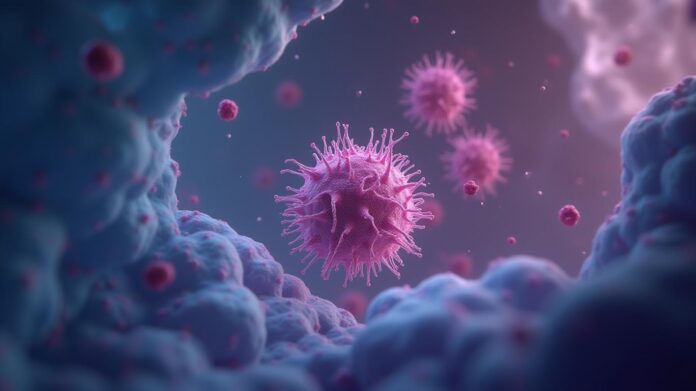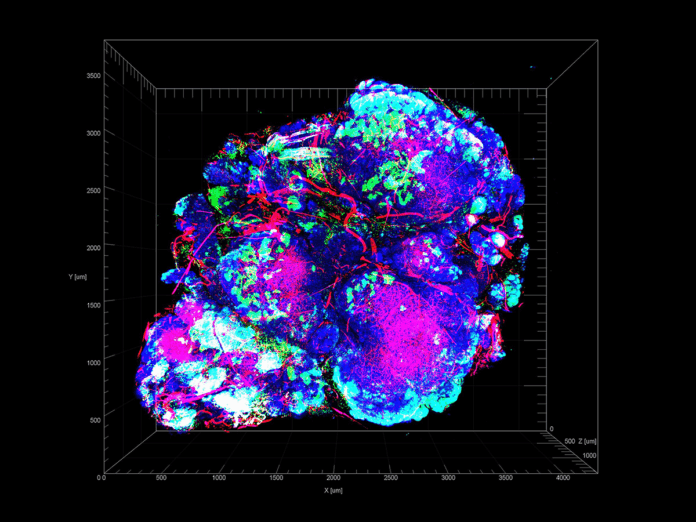In a major move set to impact the future of oncology, Abpro and Celltrion have finalized a global partnership to co-develop and commercialize ABP-102, a bispecific antibody targeting HER2-positive cancers. The deal, valued at up to $1.75 billion, brings together Abpro’s cutting-edge DiversImmune® platform and Celltrion’s global reach in biopharmaceutical development.
With HER2-positive tumors often resistant to standard therapies and prone to aggressive progression, ABP-102 offers a promising alternative, designed for higher tumor selectivity and reduced toxicity. This collaboration is more than a financial agreement; it’s a strategic alignment aimed at accelerating a potentially best-in-class treatment for patients in urgent need.
Key Highlights
- Abpro and Celltrion announced a major global agreement for the bispecific antibody ABP-102.
- The deal includes development, commercialization, and up to $1.75 billion in total payments to Abpro.
- ABP-102 is designed to target HER2-positive cancers with enhanced tumor selectivity and reduced toxicity.
- Preclinical results show improved safety and potency compared to existing HER2-targeted therapies.
- Clinical trials are expected to begin by early 2026.
- This collaboration strengthens Abpro’s global footprint through Celltrion’s established infrastructure.
The New Global Deal ─ What’s at Stake

In a major step forward for cancer immunotherapy, Abpro has finalized a strategic partnership with South Korea–based biopharmaceutical leader Celltrion. Together, they aim to develop and commercialize ABP-102, a bispecific antibody targeting HER2-positive tumors, an area of unmet medical need affecting hundreds of thousands of patients worldwide.
The deal, which could be worth up to $1.75 billion, includes equity investments, milestone payments, and global profit-sharing. Celltrion will take over development responsibilities following completion of preclinical studies and secure full global commercialization rights for ABP-102.
For context, Abpro is a U.S.-based biotech company focused on antibody-based therapies for hard-to-treat diseases, using their proprietary DiversImmune® platform to engineer more precise and effective treatments. This collaboration marks a pivotal moment in expanding Abpro’s global reach and delivering breakthrough science to patients faster.
Why HER2-Positive Cancer Is a Critical Target
HER2-positive cancers make up a significant percentage of breast, gastric, pancreatic, and colorectal cancers, in some cases, up to 30%. HER2, or human epidermal growth factor receptor 2, is a protein that promotes the growth of cancer cells. Overexpression of HER2 is associated with more aggressive disease progression and poor prognosis.
Existing HER2-targeted treatments, such as trastuzumab and pertuzumab, have shown significant benefit but still face challenges:
- On-target, off-tumor toxicity, where healthy cells expressing low levels of HER2 are inadvertently attacked.
- Resistance in a subset of tumors, reducing treatment efficacy over time.
- Limited selectivity, especially in patients with heterogeneous tumor profiles.
This is where ABP-102 offers a promising new alternative.
What Makes ABP-102 Different?

ABP-102 is a tetravalent bispecific HER2 x CD3 T-cell engager. In plain terms, it links a HER2-targeting antibody with a CD3-binding component to directly engage T-cells, the immune system’s “soldiers,” and direct them to kill cancer cells.
Its key advantage lies in its design:
- It binds strongly to HER2-high cancer cells but spares normal cells expressing low levels of HER2.
- It uses functionally monovalent CD3 binding, meaning it activates T-cells without overwhelming them, reducing the chance of dangerous cytokine storms.
- Preclinical trials show superior tumor suppression, better tolerability, and a wider therapeutic window than comparable antibodies like runimotamab.
In a study with HER2-overexpressing breast and gastric cancer models, ABP-102 demonstrated more effective tumor growth inhibition and up to two times greater efficacy than competitors. The data also showed minimal cytokine release, a major safety improvement that could allow for higher dosing in human trials.
A Closer Look at the Preclinical Success
Before a treatment ever reaches patients, it must show promise in lab (in vitro) and animal (in vivo) studies. Here’s what we know so far about ABP-102:
- Tumor selectivity ─ It selectively destroyed HER2-high tumor cells while sparing healthy tissue.
- Safety profile ─ In cynomolgus monkey studies, the antibody was tolerated at doses over 180x higher than the parent compound.
- Cytokine control ─ The modified CD3 interaction reduces the inflammatory response typically triggered by T-cell engagement therapies.
These are crucial steps in making the treatment both powerful and safe enough for use in clinical settings.
Timeline and What’s Coming Next

Celltrion and Abpro anticipate moving ABP-102 into Phase I human clinical trials by early 2026. This initial stage will focus on:
- Determining the maximum safe dose in humans.
- Observing any adverse effects or immune reactions.
- Collecting preliminary signs of anti-tumor activity.
If Phase I is successful, the therapy could move to larger Phase II/III trials within 18–24 months. While it’s still early in the clinical timeline, the outlook is strong given the depth of the preclinical data.
About the Partners
Both companies bring something critical to the table.
Abpro
Founded by the Chan brothers, Abpro has built a strong reputation for advancing hard-to-target antibodies, particularly for cancer and inflammatory diseases. Their DiversImmune® platform speeds up the discovery and design of antibody therapies using a blend of synthetic biology, computational modeling, and AI-based screening. Their goal is to make immunotherapies more accessible and more potent.
Celltrion
Based in South Korea, Celltrion is known for its expertise in biologic drug development and manufacturing. The company gained global recognition for producing high-quality biosimilars and is now expanding into innovative biologics, including antibody therapies and mRNA-based platforms.
Their proven infrastructure, experience in global regulatory compliance, and commercialization pipelines make them the perfect partner to bring ABP-102 to market quickly and at scale.
The Bigger Picture ─ Why This Partnership Matters

This isn’t just a business deal. It’s a sign of a broader shift in biotech: small, agile innovators like Abpro are teaming up with established giants like Celltrion to bring new therapies to patients faster and more efficiently.
The partnership represents:
- A strategic step forward for cancer immunotherapy.
- A milestone in international biotech collaboration.
- A model for combining early innovation with late-stage commercialization.
Moreover, the deal is financially structured to incentivize long-term success, not just short-term gains, with milestone payments and profit-sharing aligned with global market performance.
Final Thoughts
The finalization of this partnership between Abpro and Celltrion is more than just a press release, it’s a real moment of promise for patients with HER2-positive cancers. If ABP-102 delivers on its early promise, it could represent a new class of immunotherapies that are safer, more selective, and more powerful than what’s currently available.
As clinical trials unfold, the world will be watching. For now, one thing’s certain: the future of targeted cancer therapy just got a lot more interesting.







